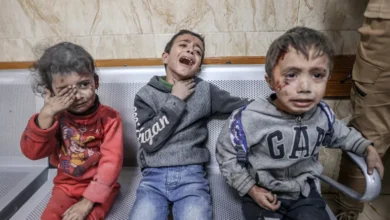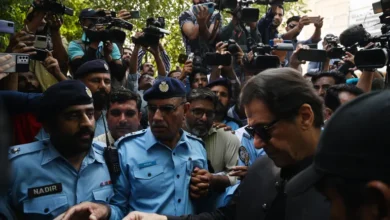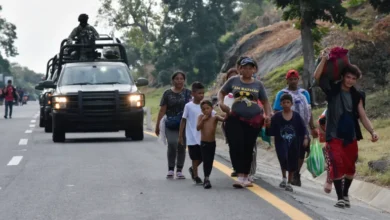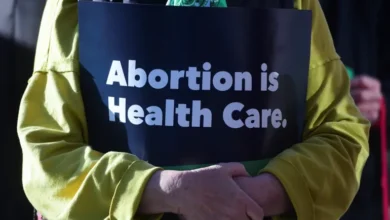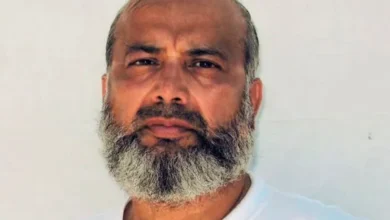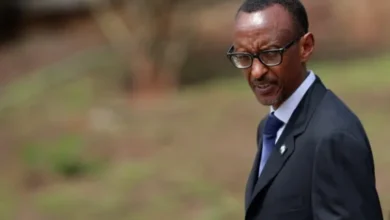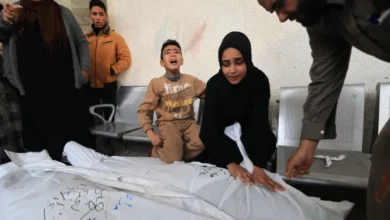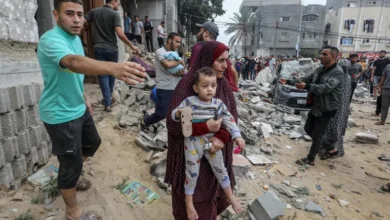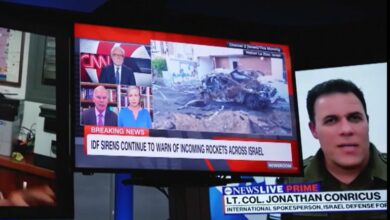How can so many in the West so easily ignore genocide?
Somdeep Sen
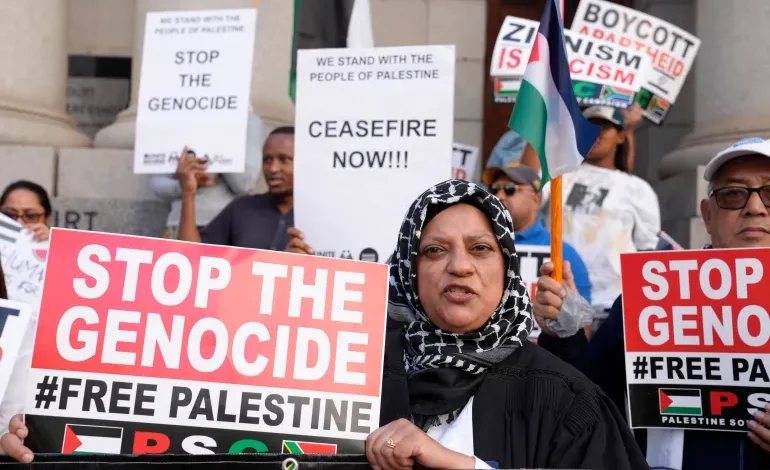
Somdeep Sen
“The commander said, ‘Shoot all of them.’ And they starting firing – pop, pop, pop, like this … I left everything behind and accepted I was going to die.”
“We are being exterminated. We are being massly eradicated. And you pretend to care for humanitarian and human rights, which is not what we are living now. To prove us wrong, please do something.”
It may be surprising to some, but these two current testimonies describing active genocidal campaigns are not from the same conflict, or even the same continent.
The first witness testimony comes from West Darfur, Sudan, where the Rapid Support Forces (RSF) are targeting the Masalit community. According to human rights organisations, the RSF has been going “door to door”, killing thousands of civilians, raping women and girls and burning down entire neighbourhoods. They have raised the alarm that there is a systematic campaign to entirely erase “an indigenous Darfuri group” and that the international community must stop the “genocide going on in West Darfur”.
The second testimony is an excerpt from Palestinian doctor Hammam Alloh’s October 31 interview with Democracy Now. Two weeks after the interview, he was killed in his wife’s family home in Gaza by an Israeli air strike. Alloh is among the more than 23,000 Palestinians killed by the Israeli military campaign in the Strip – a campaign that experts, academics and civil society organisations have deemed as “genocidal” as it has systematically destroyed all facets of Palestinian life in the besieged enclave.
But curiously, many in the West seems to ignore mass atrocities like these with ease. And Western leaders have become skilled at evading calling them what they are: crimes against humanity. Why?
In part, this is because Western collective consciousness has long been socialised with the assumption that the non-West is naturally a place of unrest, deprivation, violence and, all in all, of inescapable backwardness. This thinking was proliferated in the earliest writings by the “founding fathers” of various disciplines as a matter of scientific fact.
Take the case of my own discipline: international relations. It is meant to educate the future politician, diplomat, public intellectual or policymaker on how states interact in the international political system. Yet, its first textbooks are rooted in “Darwinist ideas”, that imagined a racially hierarchical global order and placed white Europeans at the top and all the darker peoples of the world at the bottom. This hierarchy, they insisted, was justified due to white people’s natural intellectual and cultural superiority. Over the years, the ways in which these hierarchies are perpetuated have changed and we started to use different lingo. But be it fragile or failed state indexes, political stability rankings or development-sector devised growth and socioeconomic progress indicators – they often work to establish white superiority and the victimhood of the racial other.
So, whether there is a genocide in Gaza or Darfur, those in the West often remain content with idly watching the atrocities and suffering from afar. They feel comfortable to do so because it confirms their premonition that those being subjected to genocide – whether in Africa or in the Middle East – are savage victims who cannot help but languish in a state of permanent unrest and destitution. Equally, when these victims inevitably look to the all powerful West for help, it reaffirms the West’s self-perception as superior and deserving guardians of the global order.
Of course, Western inaction against the ongoing genocide in Gaza also builds on a sordid history of anti-Arab and anti-Palestinian racism and Islamophobia.
Anti-Palestinian racism has been on full display since the start of Israel’s military campaign in Gaza. There has been a worrying normalisation of anti-Palestinian disinformation, as well as open calls for violence and hate speech across social media platforms. The rampant media bias is equally evident in the demonisation of Palestinians and the underreporting of Palestinians killed as a result of Israel’s campaign.
Sometimes the on-air anti-Palestinian racism is even visceral, like during British journalist Julia Hartley-Brewer’s heated exchange with Palestinian politician Mustafa Barghouti. At some point, during the interview, she exclaimed, “Oh my God. For the love of God, let me finish a sentence, man. Maybe you are not used to women talking. I do not know, but I would like to finish a sentence”. Of course, this is only an extension of the racist and orientalist imagery of the Arab, and the wider Muslim world, that has been long set in place in the Western consciousness.
Hollywood has routinely portrayed Arabs and Muslims men as vile, violent, ignorant, chauvinistic, fundamentalist and incompetent. Arab and Muslim women have been roundly represented as overly sexualised and/or diminutive and waiting to be saved from the bad, dark-skinned men. Journalistic accounts of the Middle East similarly describe the region as without any rational politics or political opinion. In fact, politics there is often seen as synonymous with angry and violent men, marching down the street.

